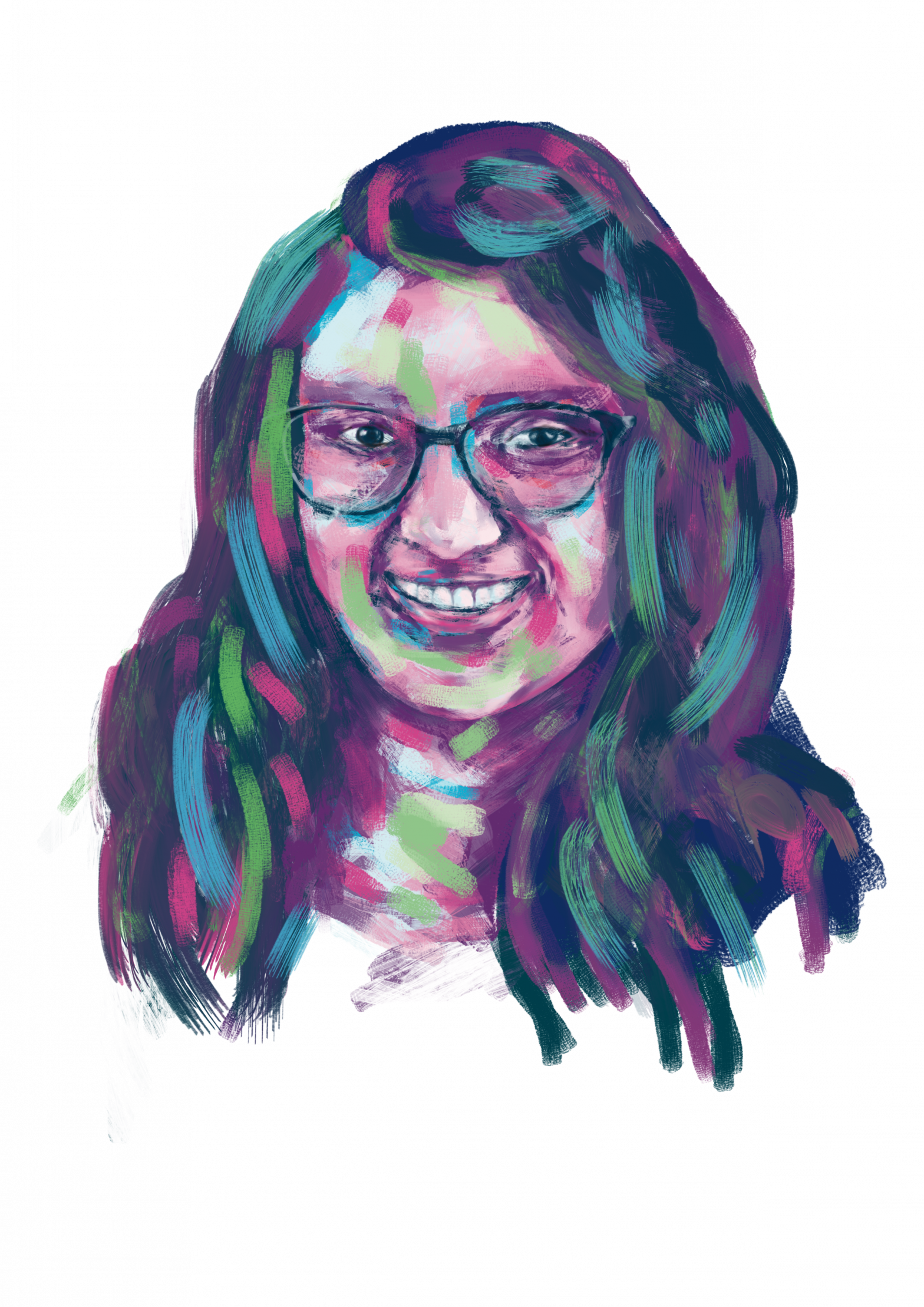Frequent visits to doctors and hospitals form many of Shambhvai’s earliest memories. To her frustration, she kept being treated for individual symptoms as opposed to their underlying cause.
After five and a half years of these reactionary treatments, Shambhavi was finally diagnosed with Alagille syndrome (ALGS). This is a rare genetic disorder that can cause problems in multiple organs in the body, particularly the heart and liver. ALGS affects approximately 1 in 40,000 people. There is no cure, but Shambhavi now has access to medications that can help her manage the symptoms.
“My rare disease affects me in so many little ways,” she says. “I live with chronic pain and fatigue. My hands are pretty weak, so I have a hard time lifting even the smallest things. My phone for instance, lifting and holding it causes fatigue and pain in my wrist muscles. I get breathless and tired as I do physical activity, so I walk slower and do my work at a slower pace. I don’t like bright lights because they make me feel tired and induce headaches. Large crowds have the same effect.”
Shambhavi has learned how to manage these symptoms, regulate pain and not ask too much of her body. She is a passionate person who loves journaling, sketching, going for walks, listening to jazz music, reading books, drinking tea, cuddling dogs and spending time with her friends. For Shambhavi, it is societal problems that often pose the greatest challenges.
She says, “I have had little support from schools, universities, or even workplaces… People have to care enough to want to help you… and we continue to find creative ways to sustain a life of dignity. For things to change, society must accept that people living with a rare disease, chronic illness or a disability are just as worthy of being a part of mainstream life as everyone else. Until you truly engage with that idea, you cannot change the way you react to or interact with such people, and your policies and support systems will only be enough to support their existence, and not their ability to thrive. To that end, we must advocate for mental health support, financial planning, and access to fulfilling work for those whose needs are not currently being met.
Shambhavi draws strength from her friends, family and above all herself. During the COVID-19 pandemic, she had to be her own support system, and realized there was something empowering about being able to look after herself. But she reflects that there is also great value in connecting with others who understand what it is like to live with a rare disease.
Taking part in Rare Disease Day and being named a Rare Disease Day Hero has, in her own words, “made a world of difference. It has given me a sense of community and belonging, as well as a feeling that I am worth it. I have made connections with people living with a rare disease like myself. It has given me so much hope, joy, and frankly, a reason to live. I don’t feel so lonely or odd anymore. Rare Disease Day has made me feel human. I never knew that I had any worth or the power to make people smile and give them a reason to feel good. I have learned how much good can come of something as simple as sharing a story.”
Shambhavi is determined to lead an independent life and improve societal attitudes to people living with rare diseases. In the meantime, she believes that the limitations of living with ALGS sit alongside the opportunities to grow as a person.
She says, “My rare disease has broadened my horizons and increased my capacity to empathize and reach out to people. It has turned me into a thinking, introspective person who is constantly processing and learning from life experiences. I truly feel each year, I become a better version of myself than the year before.”
